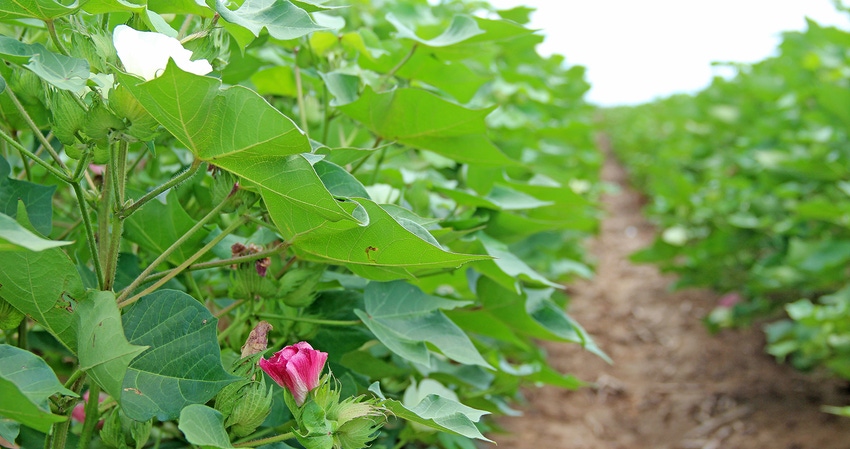
BASF in December unveiled its new Axant Flex herbicide trait technology that provides a quadruple-trait herbicide stack that is tolerant to Alite 27, BASF’s, HPPD-inhibitor herbicide.
In a conference call with cotton journalists, Matt Cook, BASF field marketing manager, said Axant Flex is on track for a 2023 commercial launch, pending EPA regulatory approval which is expected by the fourth quarter of 2022. The technology is expected to be available in select FiberMax and Stoneville cottonseed varieties for the 2023 growing season.
Axant Flex technology features the Axant herbicide trait, the first trait developed and commercialized in cotton to enable the use of Alite 27 herbicide, plus GlyTol, LibertyLink and XtendLink technology traits. XtendLink technology enables cotton growers to spray over-the-top applications of dicamba herbicide.
Luke Mankin, BASF North America regional marketing manager, said Axant Flex is the first and only technology that offers a quadruple herbicide tolerant trait stack in cotton to control resistant weeds such as Palmer amaranth.
“Herbicide-resistant weed pressure is one of the most pervasive challenges cotton growers face,” Mankin said. “For decades, BASF has committed to bringing cotton growers new solutions to combat increasingly resistant weeds, and now with Axant Flex technology, we can give growers back the control and flexibility they need to more effectively win the war against weeds.”
The active ingredient in Alite 27 is isoxaflutole, one of the class of HPPD-inhibiting herbicides that works by affecting pigment synthesis in weeds, resulting in wilting, bleaching and eventually, death. In cotton, Alite 27 would offer a new site of action for combating herbicide resistance in troublesome broadleaf weeds.
In 2020, EPA approved Alite 27 for use in GT27 or isoxaflutole-resistant soybeans. It is currently registered for use in select counties in 25 states.
Upon EPA approval, Alite 27 herbicide will provide more flexibility for many growers earlier in the season and can be applied pre-emergence or early post-emergence, as well as tank-mixed with other residual and knockdown herbicides to work within growers’ weed management program, according to a BASF news release.
About the Author(s)
You May Also Like








